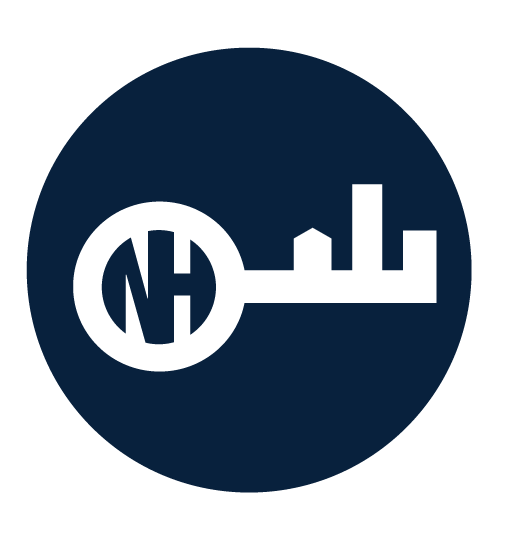As we enter the fourth quarter of 2020, preparations for this year’s annual community association meetings are already looking a lot different than last year. As homeowner and condominium associations have been battling an array of challenges amid COVID-19, HOA and condominium lawyers have been working hard to keep directors up to date on the news and board responsibilities.
HOA Annual Meeting Template
Given the ongoing pandemic, many boards are choosing to conduct their association’s upcoming HOA annual meetings virtually. To address this and guide associations on all they will need to have a successful virtual annual meeting, the HOA attorneys at NowackHoward have put together the following checklist. Co-Founder George E. Nowack and Partner Rebecca Drube offered insight into the considerations and nuances of holding an annual meeting virtually and guidance for boards who choose to take the virtual annual meeting path.
Comply with Your Community Association’s Bylaws – Consult HOA, Condominium Lawyers If Uncertain
Notices: Number of Days for Notice
For annual meetings, even virtual ones, boards must give directions for guests attending, participating, or voting. This includes the name and download link available for the virtual software that will be used to carry out the meeting, in addition to any required materials or hardware to participate. Sending out follow-up reminders for associations is also a good idea to ensure everyone has received the pertinent information and is prepared to have that time blocked off in their schedules.
Follow-up reminders can also encourage attendees to write down any ideas, questions, or thoughts ahead of time to make the meeting run more efficiently. Your HOA or condominium lawyers will be able to help review your association’s bylaws to determine how much notice the board must give your association’s members. Also, be sure to ask an HOA attorney what details must be included in the notice.
Nominations
HOA and condominium lawyers advise that, when the governing documents allow, nominations for board members should be made in advance of the annual meeting through a nominating committee. Additionally, many association bylaws require that nominations must also be allowed from the floor of the annual meeting. If you are unsure of the requirements for the nomination process for your community, consult with an HOA attorney about the nomination process required by your association’s bylaws.
Ballots
It is critical to also know what your association bylaws require for the method of voting for directors. If your members vote by ballot, the board should confirm that the ballots must be secret, whether they can be cast outside a meeting, and whether they can be cast electronically. Ballots may include a place where members can write-in candidates. If your association can vote outside a meeting electronically, consider hiring a third-party company to conduct the voting process for you.
Sign-In / Check-In
One of the biggest concerns with holding virtual annual meetings is the security of the meeting and the best method to ensure that only members or their proxies attend. Boards will want to establish an efficient way to identify and confirm the eligibility of persons who sign on for the meeting. NowackHoward HOA attorneys recommend using the “waiting room” or similar on-line feature available to check eligibility one-by-one as people are granted access into the meeting.
Boards can also request owners provide the telephone number or email address they will be using to join the meeting beforehand to ensure valid attendees. Do so by using a “check-in” form that requires owners to return their email or phone number that will be used for the meeting. This can be used as a condition of getting the meeting ID and/or password to protect that information from the wrong hands.
Homeowners Association Annual Meeting Agenda
Finally, it should be noted that any questions or topics to cover in the meeting should be submitted beforehand in order to flow through the agenda with minimal interruptions.
Technology
There are several important factors to consider on the technology side of a virtual annual meeting, including:
- Know the Tools. Be sure to fully understand the technological tools required to hold this virtual annual meeting, as the host and also for attendees to have the best experience.
- Verify Audio. Ensure all participants are able to hear the discussion before diving into the agenda of the meeting.
- Do a Test Run. Conduct a dry run of the meeting with the board to identify any problem areas that need to be addressed before the meeting begins.
- Have Help Ready. If anything is true about technology, it’s that it can go wrong sometimes – often at the most inopportune moment. Having a technical support team on standby when conducting your meeting will help resolve any issues quickly, in addition to offering a greater peace of mind.
- Monitor Emails / Questions. Questions can quickly disrupt and derail a meeting, so having attendees submit questions in advance can help you best structure the meeting to ensure everyone’s questions and concerns are addressed. For questions submitted during the meeting, be sure to have a plan to field those efficiently during or after the meeting.
- Verify Platform Capacity. Be sure to confirm the platform you have chosen to conduct the virtual annual meeting has enough capacity for all members to attend.
Chairing and Facilitation
Virtual meetings can be trickier to control than in-person meetings, as there is a limited shared space for people to connect. This distance brings with it time delays and a degree of separation between you and the rest of the participants, possibly leading to a messy off-rail meeting.
To address this possibility, designate a moderator (someone other than a board member or the community manager) to guide the discussion and ensure the meeting proceeds in an orderly and productive fashion. Once a moderator has been selected, proceed with the following checklist:
- Acknowledge the limitations a virtual meeting places on conducting discussions and that the board will do its best to facilitate a productive meeting.
- Determine if / how / when questions will be addressed within the meeting and avoid making promises about responding to all
- Inform participants of the meeting protocols prior to the scheduled time, and re-state them at the beginning of the meeting to set the tone for the discussion. A few examples of these protocols for attendees include:
- Muted unless recognized
- Identify yourself
- Limit background noise
- Speak slowly and clearly
- Be polite and have courtesy
- State clearly if there will be a vote on any matter to avoid unwarranted or inappropriate commentary.
- Stick as close to the agenda as possible. Consider offering a timed agenda to limit discussions that could drag on.
The HOA and Condominium Lawyers at NowackHoward Can Help Plan Your Virtual Annual Meeting
 Planning an annual meeting can be tough, and the process is made even trickier when factoring in a virtual meeting space. Having an experienced HOA attorney on retainer for your association will be especially helpful this fall and winter, just like over the last year, to guide and advise on the best possible course of action for your association’s annual meeting.
Planning an annual meeting can be tough, and the process is made even trickier when factoring in a virtual meeting space. Having an experienced HOA attorney on retainer for your association will be especially helpful this fall and winter, just like over the last year, to guide and advise on the best possible course of action for your association’s annual meeting.
Call the HOA and condominium lawyers at NowackHoward to learn more about holding an annual meeting virtually and the board’s responsibilities when doing so. Our attorneys are available by phone at (770) 863-8900, or by email at info@nowackhoward.com.


